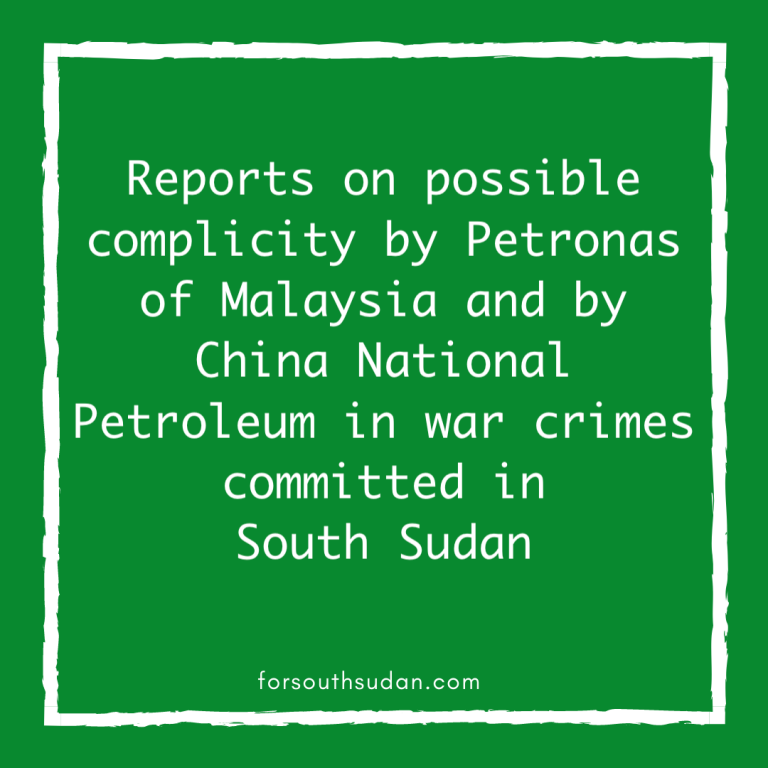Residents in Ruweng state demand services from oil companies
Author: Garang Abraham
“Oil pollution is destroying us” – eyewitness reports to South Sudan ‘s Eye Radio
Residents of Ruweng state say oil companies operating in the state are not providing them services as required by law and that there is massive pollution in the area.
Last week, the government resumed oil production at Tor oilfield in the state.
The production had come to a halt after the outbreak of violence in 2013.
The area with about 16 wells is expected to produce between 5,000 to 45,000 barrels of crude oil per day.
However, some residents who spoke to Eye Radio say they are disappointed with the government because they were promised years ago that schools, hospitals and clean and safe water points would be built but this did not happen.

This, they say, has conditioned them to continue drinking contaminated water from polluted water points, resulting in adverse effects on the local people:
“This issues of infertility, is not affecting women alone. What am saying is that women are complaining of infertility but am sure that even men are infertile. It’s only that our cultures makes men fear from expressing their grievances or complains.”
“It was said by Angel Achol three years ago that, that water next to the road side is not safe for drinking, then we asked him why, his reply was that the water can kill people because it has not been treated.”
“Am angry because that oil waste and water which is coming from oil production is the one destroying our citizens in the oil fields. I witnessed that in Paloch and is not the first time for me to participate in the petroleum committee. In 2001, I was a member of the national parliament in Sudan , when the oil pipeline reached to the area of Geri that was a desert, the area changed and the citizens were happy because there were hospitals, water and power.”
According to the transitional constitution, two percent of the oil revenue is supposed to be given back to the locals as compensation, and then relocated to an area far from the production.
However, researchers say more than 180,000 South Sudanese living near the oil fields use contaminated water which is dangerous for people’s health, livestock and the environment.


